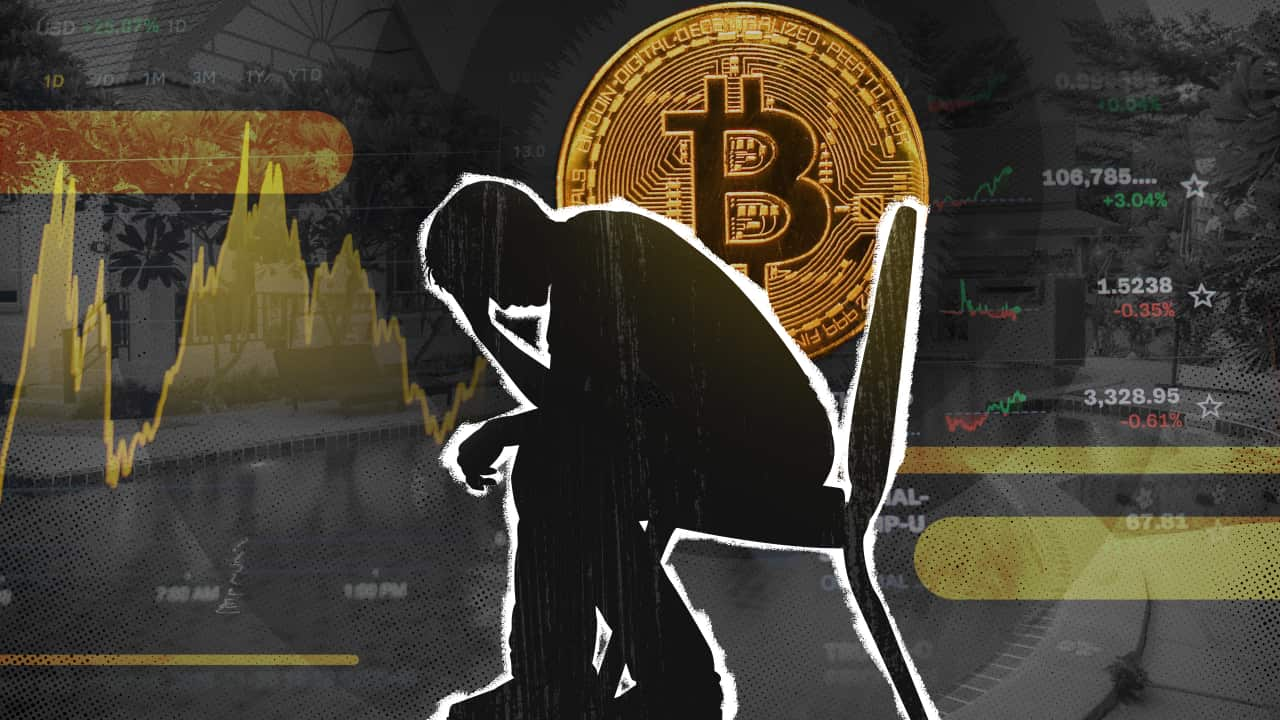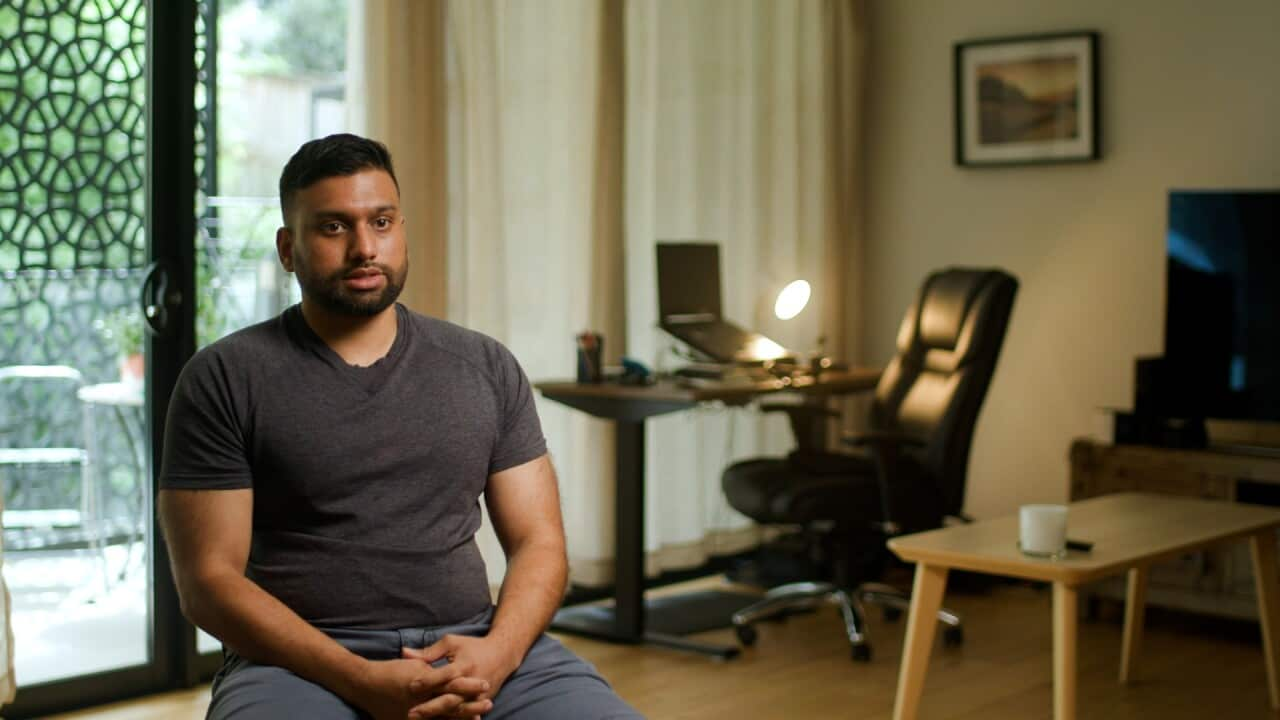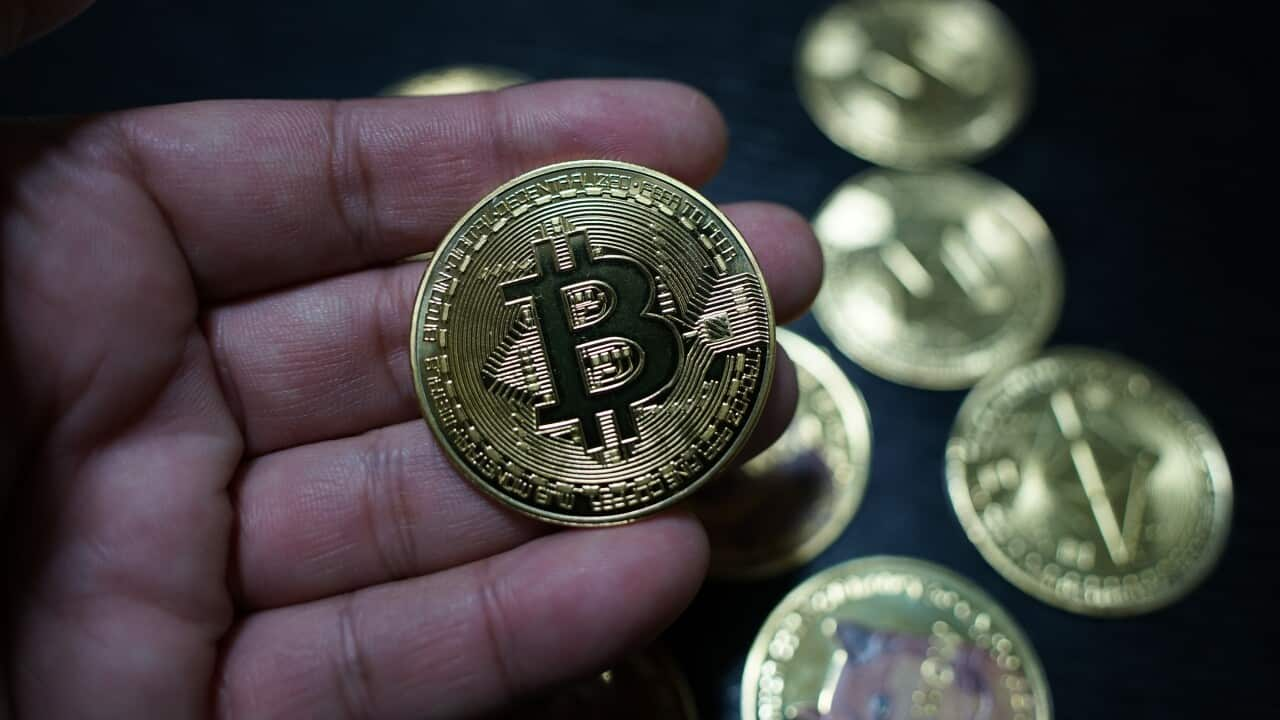We all have habits, so how do we kick bad ones and form positive ones? Watch Insight episode Habits on .
Stream free On Demand

Habits
episode • Insight • Current Affairs • 52m
episode • Insight • Current Affairs • 52m
This story contains reference to suicide
When Bob (not his real name) lost over US$100,000 ($159,000) in two weeks through cryptocurrency trading, he knew he had a problem.
The 46-year-old from Europe recently checked himself into a rehab centre in Thailand, one of several centres around the world running cryptocurrency addiction programs.
Speaking to SBS Insight amid his treatment on the condition of anonymity, Bob said he believed he had been addicted to cryptocurrency since he started trading Bitcoin — the world’s first cryptocurrency — in 2016.
He made a lot of money but he has lost more and is now out of pocket by about US$500,000 ($796,000).
Cryptocurrency is virtual "money" or "tokens" built with a technology called blockchain. It is not backed by any institution and anyone can freely buy and sell them on online marketplaces or "exchanges" with normal cash or existing cryptocurrency, just like online shopping. Crypto aims to decentralise money, that is, to become a form of "money" not controlled by governments or banks.
"I still believe in the decentralisation of money but there is a part of crypto that is so dark, which is even worse than a casino," Bob said.
"You can do it 24/7 behind your computer, and be completely anonymous.
"There is nothing wrong if you invest a little bit of money in say Bitcoin but what I was doing, that's the other side of the coin. The whole thing definitely needs to be regulated."
Huge gains, huge losses
Bob’s problem highlights the issue of addiction to cryptocurrency trading, or crypto-addiction, and other associated forms of addiction like obsessions with online crypto casinos.
The high-octane, volatile and unregulated nature of crypto-trading offers those drawn to it what experts such as psychologists and therapists call a constant craving of the "high" of winning big.
Bob is just one of many who lurk on online platforms such as Reddit and Gamcare (a UK gambling addiction support organisation) looking for help anonymously.
The Australian Federal Police says Australians lost at least $180 million in crypto-trading .
According to 2024 reports published by Swyftx and Coinbase — two of Australia's better-known crypto exchanges — as well as financial comparison site Finder, about four to six million Australians own crypto.
Coinbase and Finder say two-thirds of crypto owners trade at least once a month and the average crypto portfolio is just over $20,000.
There are 135 crypto exchange businesses in Australia worth about $470 million, according to research group IBISWorld. The global crypto market in turn stood at US$2.2 trillion ($3.5 trillion), crypto exchange Kraken said late last year.
The crypto rollercoaster
Cryptocurrency has a reputation for being highly volatile.
it is now worth much more, but still records big price swings.
This week it was valued at about US$96,000 ($150,000) after being close to US$109,000 ($171,000) in January, a record high. Last August, prices were as low as US$49,000 ($77,000).
Many other cryptocurrencies including meme coins that derive their value from internet viral or trending events — like the one US President Donald Trump launched last month — can surge in price multiple times over a short time.

Craig Bilton, clinical director at Thailand's The Diamond rehab, says crypto-trading is yet another form of gambling. Credit: FOTO JOE
He said the centre has been fielding an increasing number of calls from people with potential addictions. He said after the pandemic broke out, some people turned to crypto-trading to stave off boredom or to survive job losses.
As crypto-trading evolved, it has become a form of gambling, targeting the "dopamine circuitry" and manipulating the brain to crave the dopamine hit that comes from winning, he says. Some crypto-traders, however, told SBS Insight what they do isn't gambling and the losses they suffer are part of the business of making money in the crypto market.
"So you are always waiting in anticipation for the win," Bilton said.
"And it's not necessarily the win that you're after. It's the dopamine hits in anticipation of a potential win. Dopamine is a motivating neurotransmitter that rewards repeat behaviour.
"You keep chasing the win and over time, a dopamine sensitivity takes place, which means that you’d start doing riskier trades in order to get the same level of satisfaction."
'Skill-based' gambling
What caught Bob off guard was that even though he has always had a tendency to gamble, he didn’t see crypto-trading as gambling but as traditional market trading because trading cryptocurrency requires research and study.
Bilton agrees, saying it makes crypto-trading a form of "skill-based" gambling.
The turning point for Bob came when he started buying another cryptocurrency, Solana coins. Just before he went to rehab, he watched US$10,000 ($16,000) vanish online in three minutes after the price of Solana coins fell quickly.
"I was feeling so down and desperate when I thought I’d do one more gamble. When the Solanas went to zero, I actually felt relieved. I thought I could sleep now but the next morning I woke up still wanting to buy Solanas," he said.
I still believe in the decentralisation of money but there is a part of crypto which is so dark, which is even worse than a casinoJohn*
His wife cashed out some of her own cryptocurrency to pay for his treatment, telling him that she would leave him if he didn’t recover.
Hard to spot, few warnings
Research into crypto-addiction is in its early stages and awareness about the problem is limited, g, says Ben Johnson, a PhD research student at the University of Queensland who focuses on artificial intelligence, gaming, and crypto-trading.
The fact that crypto-markets do not close and people can trade 24/7 are some of the factors that contribute to the industry's "turbulent and hazardous" nature, crypto-focused research by Johnson and his team at UQ says.
Johnson says crypto-trading can also be very emotional because it promotes an attachment to online communities.
"A lot of these traders form communities. So if you buy Dogecoin, it's not like just buying, say, BHP stock," Johnson said.
"You become very emotionally attached to these things that you're buying."

The Diamond rehab just outside Bangkok has fielded a rise in calls about crypto-addiction. Credit: FOTO JOE
Bilton says while warnings may be scarce, the addiction is real.
His work revealed most people who checked into rehab had not only lost large amounts of money but suffered emotional and mental trauma.
He said most people with potential problems were men because women are more risk-averse, and an addiction usually affects those under the age of 50.
Other addictions
Two months ago, cryptocurrency trader Tom (not his real name) posted an online cry for help on the discussion platform Reddit. saying he had been "on the ledge too often" having suffered losses playing crypto casino games.
"Coin flip between life and death in this addiction is all too real. I feel absolutely ashamed of my brain-rotted actions and the debts I owe to others who trust me," he told SBS Insight.

Cryptocurrency such as meme coins — that follow an internet trend or viral moment — can rise in value multiple times in a short period. Source: AAP
"I might spend maybe 13 to 15 hours a day playing when I am at my 'peak point addiction', and forget to eat, even hold in my pee," he said.
Everyone in his life has turned into a "creditor" who has lent him money to trade crypto, Tom said.
I might spend maybe 13 to 15 hours a day playing when I am at my "peak point addiction", and forget to eat, even hold in my peeTom
Of the 1.4 million individual bets he has made on crypto casinos, he made losses on 845,000 of them. On one occasion, he lost US$400,000 ($637,000) in one go.
"Physically I am safe ... except [from] my mental state," he said.
"I've tried to curtail urges and set up blocks where needed but it's the mental strain of the debt cycle and self-comparison to peers that feeds into further addiction."
Research in the scientific journal Addictive Behaviors shows there is a strong relationship between crypto-trading and an increase in other gambling activities.

A group therapy room at The Diamond rehab centre in Thailand. Credit: FOTO JOE
Both the Australian government and the Australian Federal Police have issued warnings about the volatility of crypto-trading and scammers.
For Bob, he intends to stay on course with curbing his addiction once he completes his 42-day program in Thailand.
He's certain he'll never touch it again.
Readers seeking crisis support can contact Lifeline on 13 11 14, the Suicide Call Back Service on 1300 659 467 and Kids Helpline on 1800 55 1800 (for young people aged up to 25). More information and support with mental health is available at beyondblue.org.au and on 1300 22 4636.
Embrace Multicultural Mental Health supports people from culturally and linguistically diverse backgrounds.
From sex and relationships to health, wealth, and grief Insightful offers deeper dives into the lives and first-person stories of former guests from the acclaimed TV show, Insight.
Follow Insightful on the , , , or wherever you get you get your podcasts.




